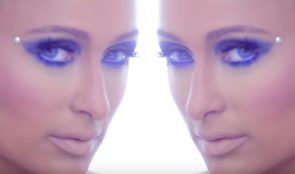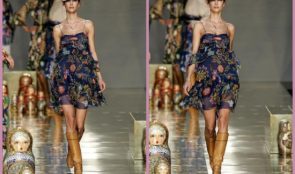I have a thing for colorful clothing, wild socks and boots. My shoe collection rivals Imelda Marcos’ – almost. So it is no surprise that I have a dress rule itch to scratch. An itch that has irked me for a long time, one that is not unique to the field of medicine, but applies to all professional schools, be it law, finance or any other. Dress for Success. What does this even mean?
Every fall, I look out weekly at what appears to be a sea of penguins crowding admissions offices, touring the halls of the medical school, hospital corridors and cafeteria. Dark pant or skirt suits with white (rarely pale blue) blouses and shirts.
I was a penguin once. Boring as all get-out.
Now as an admissions officer, I find it hard at the end of interview days to distinguish the remarkable students I have met, as individuals.
Who makes these rules and why do we feel the need to conform? To be sure, it is not only women that are held to these dress standards, however the rules for women seem more restrictive regardless of professional status. These rules are dated and annoying because they reinforce arbitrary norms of behavior and dress.
Norms that are deemed acceptable, yet in many ways hinder equity and progress.
“Dress for success” is a topic that pops up periodically in magazines and websites. Even Scientific American weighed in on this controversial topic. In most professional jobs, the basic rules are clear and make intuitive sense- clean clothes, comfortable shoes (in medicine, the interview day is often long and involves a fair amount of walking as one tours the facilities), and avoidance of excessive jewelry that could hinder job performance. Beyond that, I wonder why the continued emphasis on dark suits in order to “look professional”- especially at professional school and job interviews. Who decided that people need to look dull and drab to be taken seriously?
Combing through the internet, I found hundreds of articles on what to wear for a medical school or residency interview and all of them recommended the penguin look with pantyhose for women wearing skirts, and close-toed shoes. I understand not wearing high heels, distracting jewelry and plunging necklines or short skirts, but the rigid requirement of the “dark suit” bothers me. Furthermore, these rules seem to apply only to interview days. Once admitted, standards relax sufficiently and dress can often become overly casual.
But is this conformity what we really want or would we rather have a view into what the candidate is really thinking, feeling and trying to express?
But is this conformity what we really want or would we rather have a view into what the candidate is really thinking, feeling and trying to express?
I wonder if the time has come to abandon these rigid dress rules that at this point seem to simply persist out of habit and misguided “good advice”. For an interview, a clean comfortable outfit should be good enough. Shoes that are comfortable and close toed are fine (close toed shoes are the rule in most hospitals to prevent injury), but at the height of summer, I am not sure pantyhose are necessary - one might even say they should be banned as a health hazard! Furthermore, for professions and workplaces that should be welcoming to all, what message do these rules send to gender nonconforming individuals, those from countries that would be proud to wear their traditional clothing to an interview and the many who cannot afford a tailored suit?
I admit, I do coach my mentees on how to dress for interviews. It is hard to tell them not to wear a suit when everyone else on the interview trail will most certainly be wearing one. I do however encourage them to wear something comfortable and add a splash of color - a brightly hued shirt, blouse or scarf or shoes if they are bold enough to go for it AND it feel right for them.
My simple message – don’t be afraid to be your authentic self. It is good to be remembered as the candidate who stood out as a unique individual in a sea of talent!















